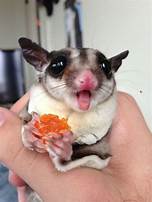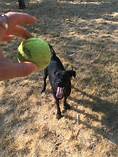Can Sugar Gliders Be Pets?
Sugar gliders are small, adorable marsupials that have become increasingly popular as pets in recent years. But before you decide to bring one of these cute creatures home, it's important to do your research and make sure that a sugar glider is the right pet for you.

Temperament and Behavior
Sugar gliders are social animals that live in colonies in the wild. They are nocturnal and spend most of their time sleeping during the day. At night, they become active and playful, engaging in behaviors such as climbing, jumping, and gliding.
Sugar gliders are known for being very friendly and affectionate towards their owners. They love to be held and petted and will often bond closely with their human companions. However, they can also be quite mischievous and may chew on furniture or other objects in your home.
Diet and Nutrition
Sugar gliders are omnivores and their diet consists of a variety of foods, including fruits, vegetables, insects, and small animals. It is important to provide your sugar glider with a balanced diet that contains all the nutrients it needs to stay healthy.
Some of the foods that sugar gliders can eat include:
- Fruits: Apples, bananas, grapes, berries, and melon
- Vegetables: Collard greens, kale, spinach, and carrots
- Insects: Crickets, mealworms, and dubia roaches
- Small animals: Mice, gerbils, and hamsters
Housing and Care
Sugar gliders need a spacious enclosure that is at least 2 feet long, 2 feet wide, and 3 feet tall. The enclosure should be made of a sturdy material, such as metal or plastic, and should have plenty of ventilation.
Inside the enclosure, you should provide your sugar glider with a variety of toys and perches to keep it entertained. You should also provide a nesting box where it can sleep and a litter box where it can go to the bathroom.
Lifespan and Health
Sugar gliders typically live for 10 to 15 years in captivity. They are relatively healthy animals, but they can be prone to certain health problems, such as respiratory infections, dental problems, and malnutrition.
It is important to take your sugar glider to the vet for regular checkups and to provide it with a healthy diet and a clean and comfortable living environment to help prevent health problems.
Conclusion
Sugar gliders can make wonderful pets for those who are willing to provide them with the proper care and attention. They are social, affectionate, and playful animals that can bring a lot of joy to their owners. However, it is important to remember that sugar gliders are not low-maintenance pets and require a significant amount of time and effort to care for.
Declaration: All article resources on this website, unless otherwise specified or labeled, are collected from online resources. If the content on this website infringes on the legitimate rights and interests of the original author, you can contact this website to delete it.





